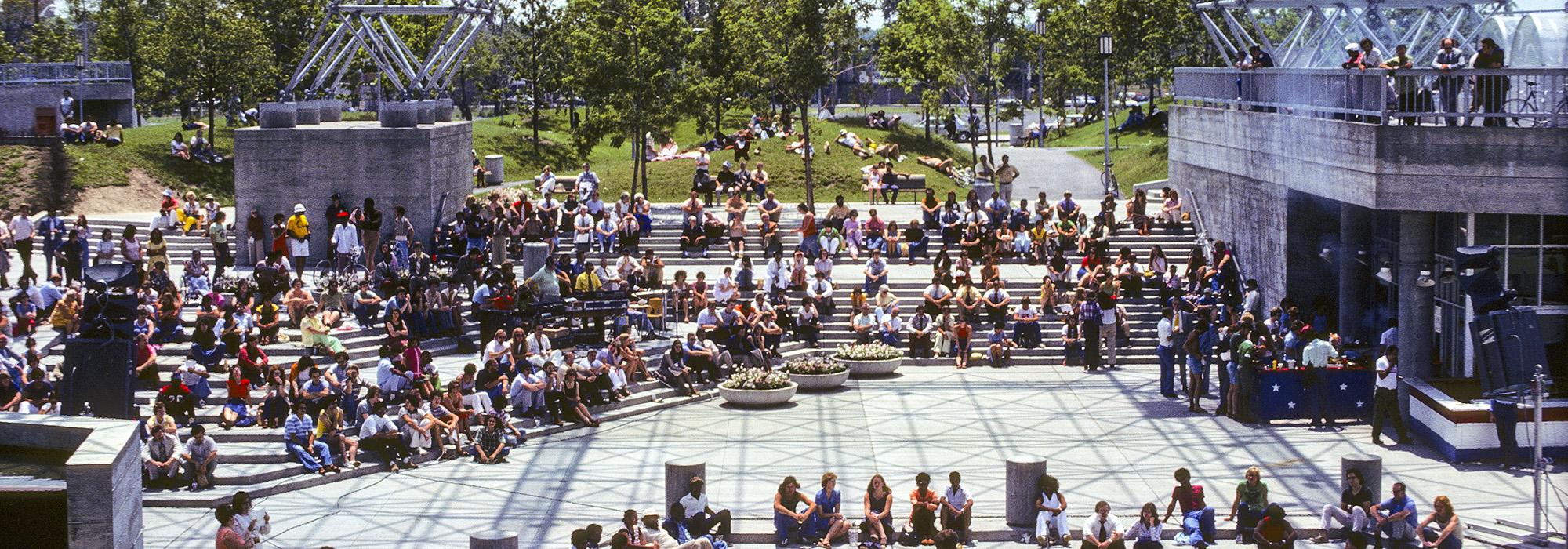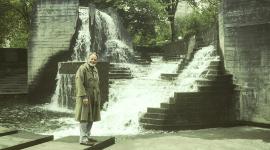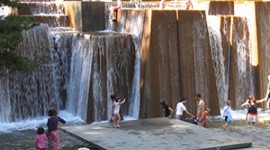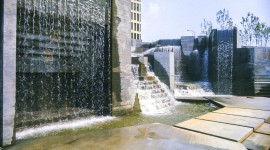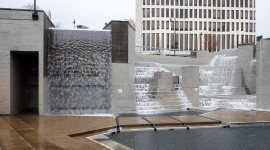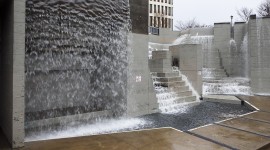Threatened Halprin Park Makes a Comeback
Lawrence Halprin & Associates executed plans for Manhattan Square Park in Rochester, New York as part of the city’s urban renewal efforts during the early 1970s. The design for the five-acre neighborhood park was completed in 1972. The site opened to the public in 1974. Now known as Martin Luther King Jr. Memorial Park, the landscape was complex and multi-layered, with a spatial organization that alluded to the city’s historic street grid.
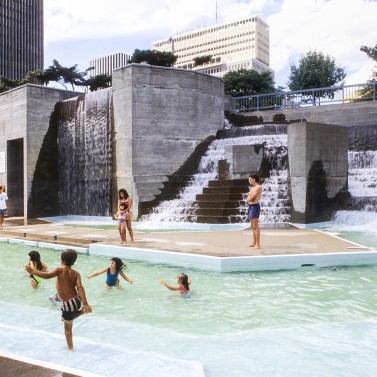
Landscape features included a sunken amphitheater plaza that could seat 2,000 people, a waterfall fountain, a steel space-frame structure with observation tower, a restaurant, flexible space for recreational use (hockey in the winter, and tennis or basketball in the summer), a promenade, a meadow, and a children’s wading pool. The park is celebrated as Halprin's most multi-purpose landscape; he once referred to it as having "four dimensions".
Unfortunately, the concept and aesthetic behind Rochester’s urban renewal plan was not an immediate success. The ideas that contributed to the park’s design were progressive and sophisticated for their day but did not result in heavy traffic. Minimal use of the park led the city to deprioritize its maintenance and the landscape began to deteriorate during the 1980s and 1990s. The observation tower was closed, the waterfall fountain was shut off, and the lighting system on the space frame structure was allowed to burn out. General neglect led to further decline in public use and facilitated occasional vandalism.
Years of deferred maintenance led to Manhattan Square Park’s inclusion in The Cultural Landscape Foundation’s Landslide 2008: Marvels of Modernism, along with eleven other at-risk post-War properties. The recommendations made in Landslide’s call to action sought a renewed public investment in Manhattan Square Park, cautioning that its unique design and features, all attributed to Halprin, would be lost if they were allowed to continue to deteriorate. A case was also made that an informed rehabilitation of the park would reinvigorate Rochester’s declining downtown core.
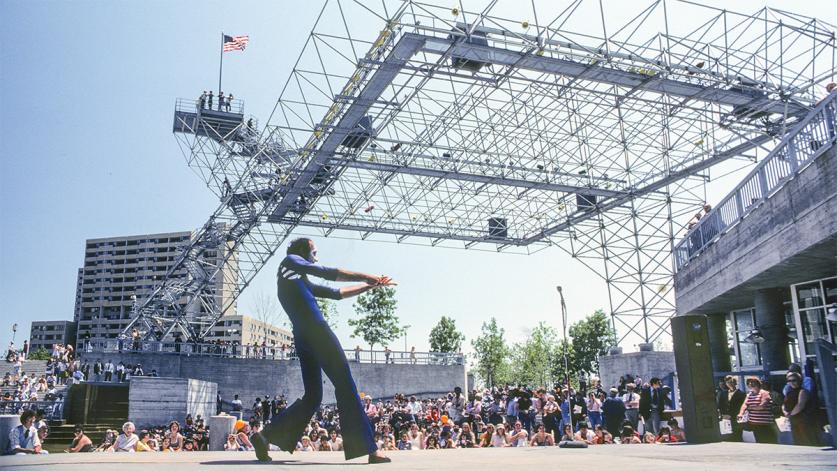
The national Landslide campaign calling attention to under-valued modernist landscapes (which included a travelling exhibit produced in concert with The George Eastman Museum of International Photography and Film, in Rochester), spurred a renewed interest in urban public space, stimulating a discussion at both the local and national levels about the significance of Halprin’s Rochester design. The city eventually approved a phased capital project based on already underway master planning efforts which directed millions of dollars toward rehabilitating the park, while updating certain features to accommodate new uses. The flexible recreational space was repurposed as a reflecting pool during the summer season; the formerly abandoned restaurant building was rehabilitated and reopened as an event space in 2014; and in the fall of 2016, the waterfall fountain will flow again for the first time in decades.
A free tour of the park will be offered on September 17 to commemorate the 100th anniversary of Lawrence Halprin’s birth year. The tour is open to the public and will be guided by JoAnn Beck, who was a senior landscape architect and project manager with the City of Rochester for over twenty years and was heavily involved in the on-going rehabilitation of Manhattan Square Park. Beck will describe the original Halprin design and speak to how and why the park has changed over the years. She will also discuss the role of the park at the heart of Rochester’s downtown area, and the long-term goals behind the park’s rehabilitation. Registration information can be found here.



